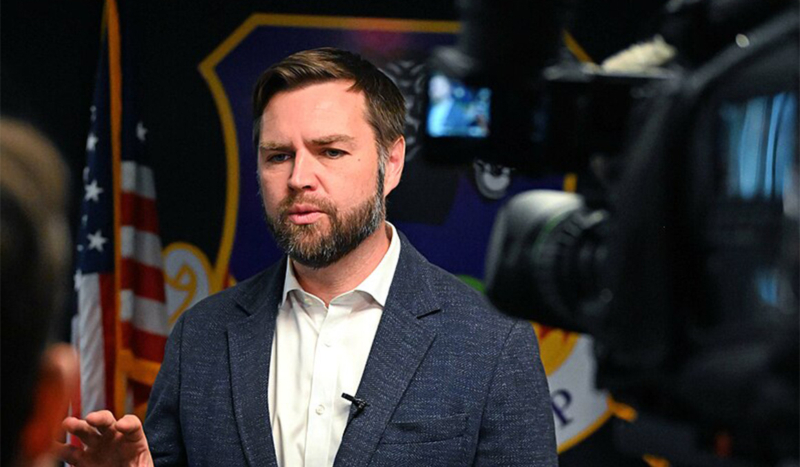
Colin Simpson / wikimedia Commons
Prominent Catholics should celebrate the election of Vice President JD Vance as a cultural and political victory. A majority of Catholic voters backed him as part of President Donald Trump’s ticket, and in any case it’s always good – all things being equal – to see a Catholic in a position to witness to our faith in public life.
But Vance’s presence in the public square has sussed out a disturbing fact: Certain circles of Catholics are shockingly unwelcoming to Catholic converts. Their disdain is so open and arrogant that it’s likely already serving as a stumbling block to onlookers on the peripheries of the Church who are just now considering converting themselves.
What could possess a prominent Catholic priest to respond to a convert like Vance by going on national TV and calling him out as “you who are only a Catholic for six years” in the middle of a diatribe against the vice president’s good-faith efforts to apply Catholic social teaching to the humanitarian crisis he was elected to address?
I did a double-take, but that’s really what Fr. Edward Beck said of Vance on CNN this week. Listen for yourself:
Or take Catholic speaker Gloria Purvis. She has vehemently and publicly accused Vance of all sorts of evils. And that’s bad enough, but not my point. My point is that in many of her attacks on Vance, she directly references his status as a convert as if it were a mark of shame.
Purvis is a highly-placed representative of our faith. The United States Conference of Catholic Bishops allowed to deliver a keynote address at last year’s Eucharistic Congress. Doesn’t this degree of unwelcome toward a convert constitute something of a scandal?
Perhaps we caught a glimpse of the real motive behind much of this hostility this week in the opinion of The National Catholic Reporter’s Michael Sean Winters, and by extension the editorial staff and readership of that publication who presumably approve his writings.
In an op-ed, Winters called Vance’s public discussions of his faith “sophomoric,” dismissing his recent reference to the Catholic concept of the ordo amoris as “Hillbilly theology.”
The hillbilly reference comes from Vance himself, a self-deprecating appellation he has used to refer to his upbringing as the child of an impoverished, somewhat dysfunctional working-class family in Ohio.
To throw Vance’s status as a convert to the Catholic faith back in his face, and to conflate it also with his class background, is just the opposite of the kind of Catholic witness that Pope Francis has called for and which I know most of our bishops want to cultivate.
I’m not here to offer some sophisticated defense of Vice President JD Vance’s interpretation of the ordo amoris, or even to outline anything much about his grasp of Catholicism. But I did feel compelled to write something about a glaring and simple problem of prominent Catholics giving a poor witness. Surely it hurts the converts already sitting with us in the pews and deters more from joining them.
After all, if Vance can’t receive a warm welcome, who can?
As I mentioned before, he came from humble beginnings. He entered the Catholic Church in 2019 as what you might call an intellectual convert, coming to the Church by way of deep reading in the Catholic tradition of thought. Nothing wrong with that. The conversion of St. Augustine, who within a few short years became a major religious and even political spokesman for the Church, came about in the same way.
As his public profile has grown, Vance has done the opposite of hiding his faith under a bushel basket.
He’s shown an exceptional enthusiasm for Catholic teaching. He talks more (and more affectionately) about his faith tradition than virtually any other Catholic public figure, in fact.
He also witnesses to the Catholic faith in simple, wordless gestures. His visit this week to Notre-Dame Cathedral in France comes to mind, where he led his wife and children in quiet, reverent prayer.
I think every Catholic should be able to agree we want more of this, not less. And even for Catholics who view Vance as entirely “other” politically, they can still take some pride in him as a fellow Catholic choosing to live out the faith in public life. We know there are rich rewards for that kind of openness.
“I was a stranger,” the Lord promises to tell those of us who practice the virtue of hospitality, “and you welcomed me.”

